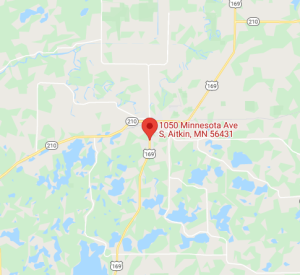Can You Still Get Gum Disease After Getting Dental Implants?
Once you’ve gotten dental implants in Deerwood, MN, you are still at risk of developing gum disease. It doesn’t just disappear because you now have an implant. And if you don’t get it treated right away, you could lose your implant.
What Is Peri-Implantitis?
Peri-implantitis happens when bacteria build up on your gum tissue and the bone surrounding your dental implant.
The Two Stages of Peri-Implantitis
There are two stages of peri-implantitis.
1. Peri-Implant Mucositis
Peri-implant mucositis is the stage where your gums will swell up, and symptoms similar to gingivitis are found around your gums and implant. Then, eventually, a lesion will form around your implant.
2. Peri-Implantitis
Peri-implantitis is the continuation of peri-implant mucositis. This happens once your implant has developed a lesion around it, and the bone supporting it is now starting to deteriorate.
How Do You Know If You Have Peri-Implantitis?
The symptoms of peri-implantitis include the following:
- Bleeding gums.
- Swollen gums.
- Pain when chewing.
- Fever.
- Bad breath.
- Loosening of your dental implant.
The worst-case scenario is when peri-implantitis causes your dental implant(s) to fail and fall out completely.
Prevention Is Key
The best way to prevent peri-implantitis is to practice good oral hygiene and adopt consistent dental habits.
For example,
- Practice good brushing and flossing habits.
- Visit your dentist at least twice a year.
- Talk with your dentist in Deerwood, MN, about receiving treatments designed to stop bacteria before it starts.
- Eat a healthy diet.
- Quit smoking and vaping. Both are huge risk factors for developing peri-implantitis.
Unfortunately, it’s still possible to get peri-implantitis even if you have good dental habits. However, practicing good oral hygiene will lessen your chances of getting it.
What Happens If You Do Develop Peri-Implantitis?
If you do develop peri-implantitis, treatment options are available to stop the disease, stabilize your implant, and fix it. The recommended treatment for peri-implantitis is surgical intervention therapy. Surgical intervention therapy involves access flap and bone recontouring, also called resective surgery, and access flap and debridement, along with other regenerative methods that involve using bone grafts with a membrane or without a membrane.
Do You Need a Dentist in Deerwood, MN?
If you are looking for a dentist in Deerwood, MN, please Contact River Oaks Dental today. We offer a comfortable, relaxing, and judgment-free office with state-of-the-art equipment to provide you with the best dental care possible.






